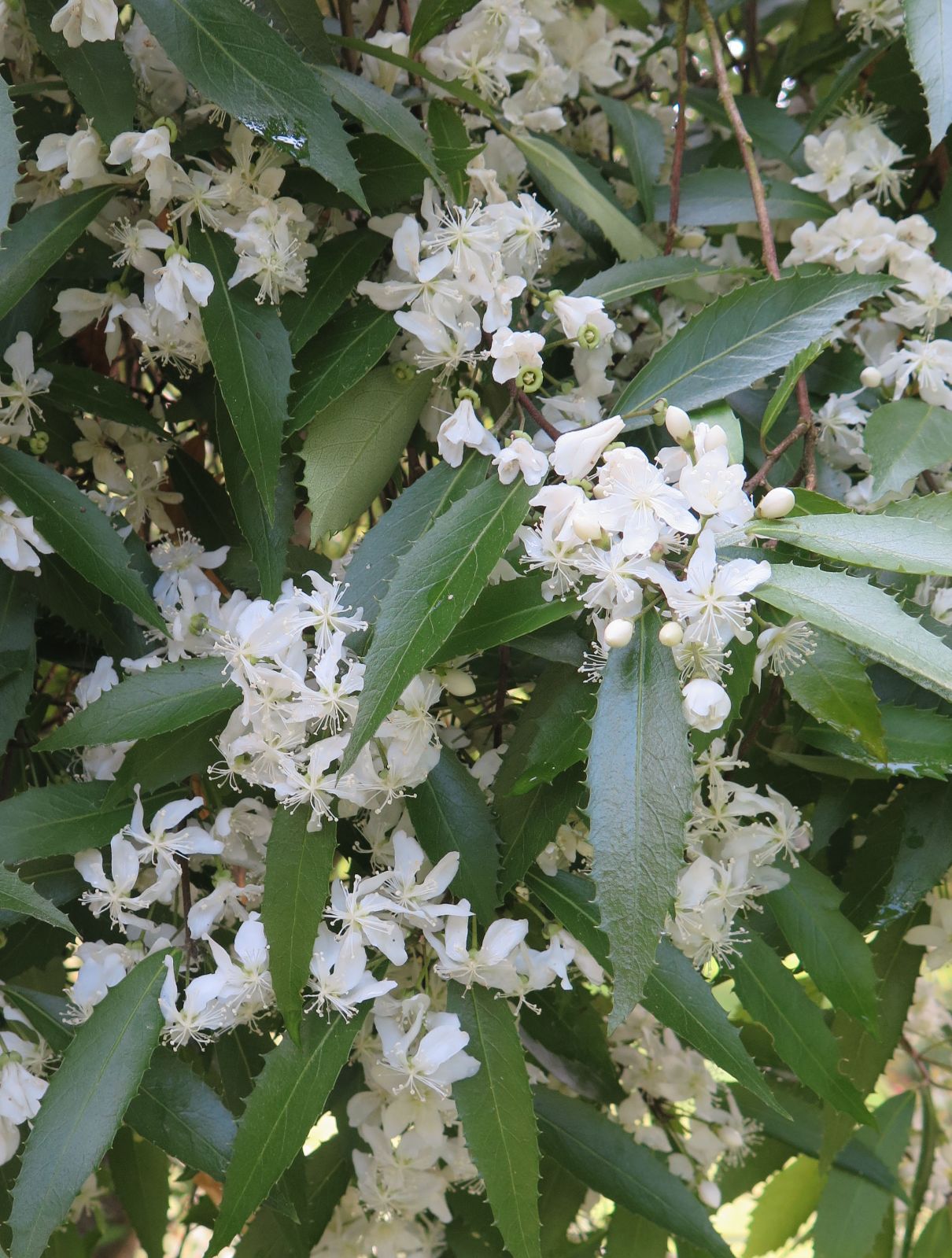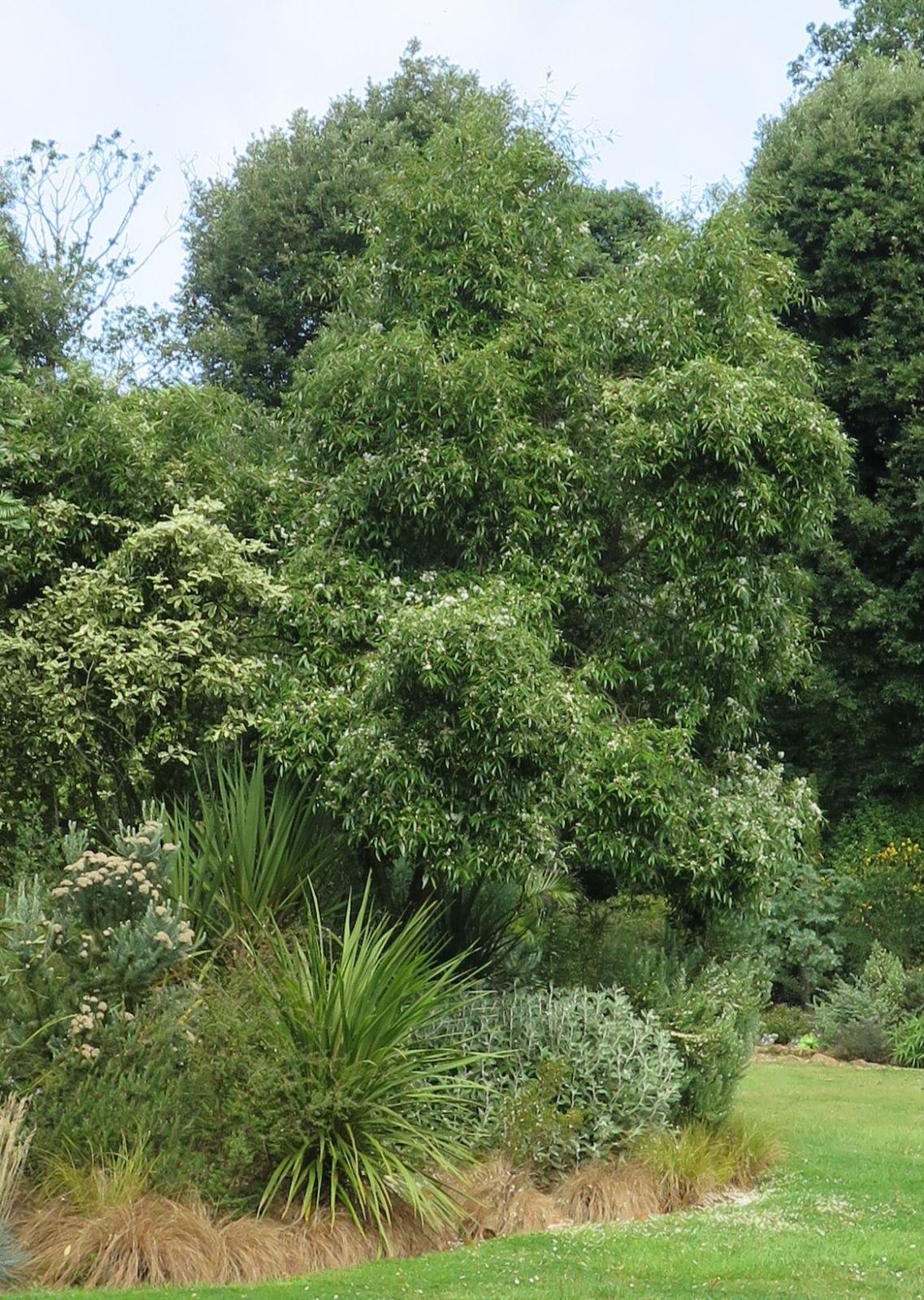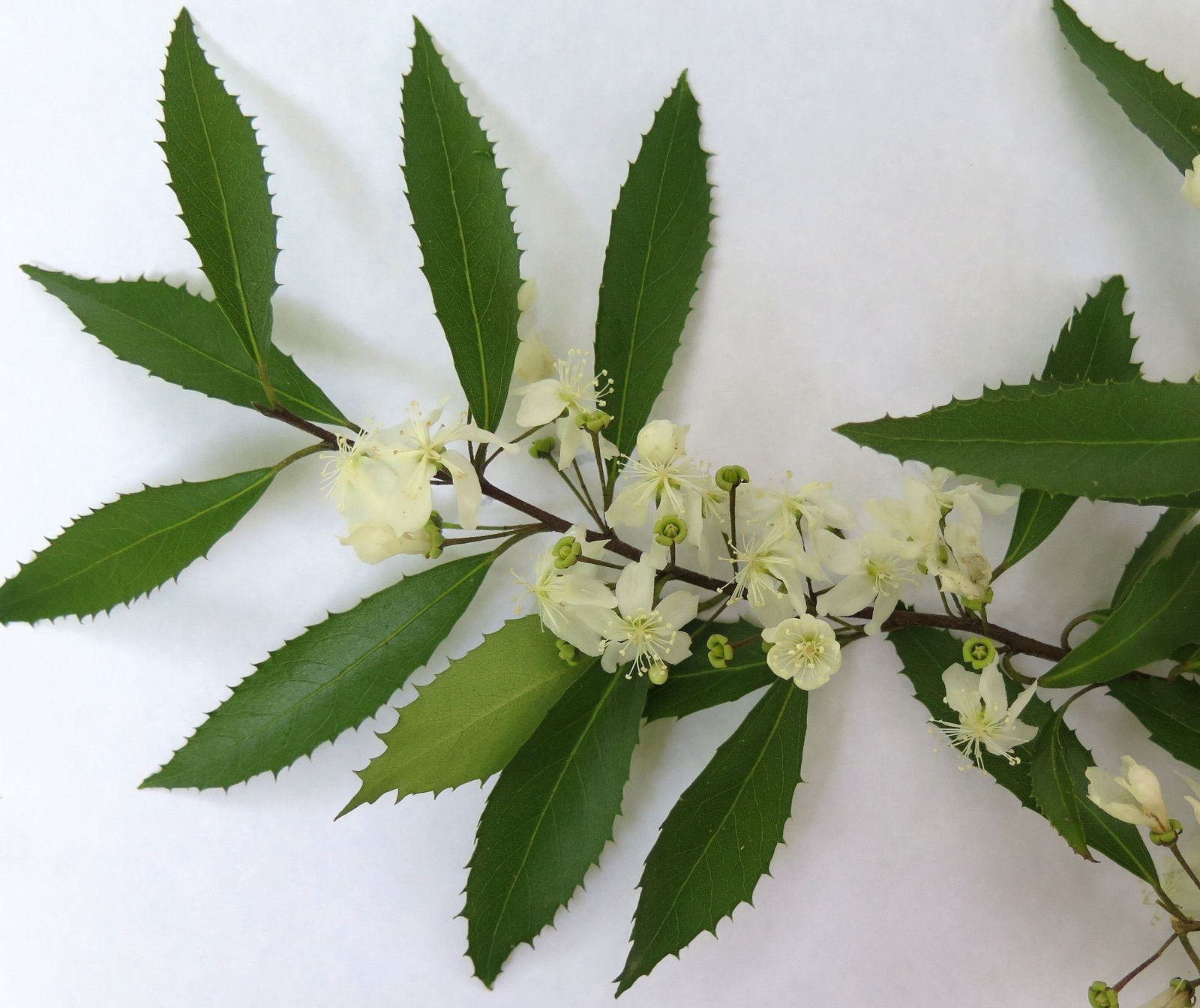Hoheria 'Borde Hill'
Sponsor
Kindly sponsored by
a member of the International Dendrology Society
Credits
Julian Sutton (2021)
Recommended citation
Sutton, J. (2021), 'Hoheria 'Borde Hill'' from the website Trees and Shrubs Online (treesandshrubsonline.
Genus
Synonyms
- Hoheria angustifolia 'Borde Hill'
- Hoheria sexstylosa 'Borde Hill'
Branchlets purplish, spreading to pendulous, with sparse stellate hairs when young. Leaves almost glabrous, shiny dark green above, paler beneath; broadest near the middle, 6–9 × 2(–3) cm including the widely spaced, triangular, acuminate teeth; base gradually tapered; apex narrowly acute. Flowers 2–2.5 cm across, in clusters of 1–5; petals white, narrowly elliptic to oblong, without a claw, not overlapping when fully open. Sepals strongly reflexed even in recently opened flowers. Styles and stigmas white. Carpels 5(–7), with spreading wings in fruit. (Hutchins 2006; pers. obs. 2021)
USDA Hardiness Zone 8-10
RHS Hardiness Rating H4
A small, broadly columnar, evergreen tree, flowering profusely from mid-July to August, common in the British nursery trade. The original tree grew against a wall at Borde Hill, Sussex, before 1967, where it was labelled H. angustifolia (Bean 1981). This identification was certainly wrong. It has since been treated either as a clone of H. sexstylosa (Hutchins 2006) or as a hybrid between the two (Edwards & Marshall 2019). Impostors have been noted (N. Macer pers. comm. 2021).



